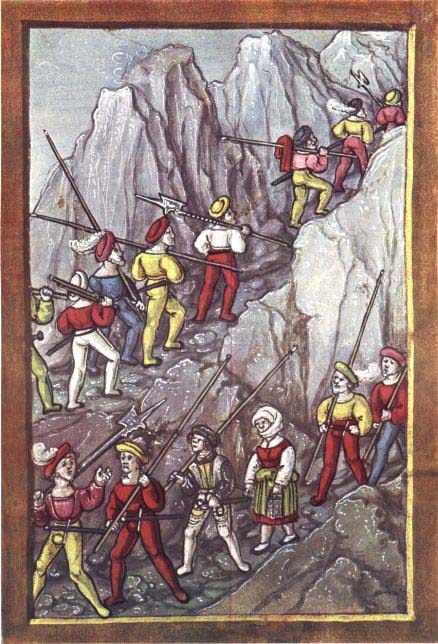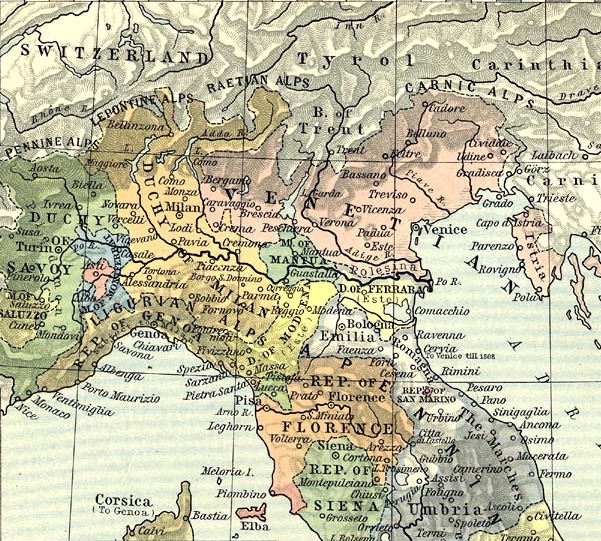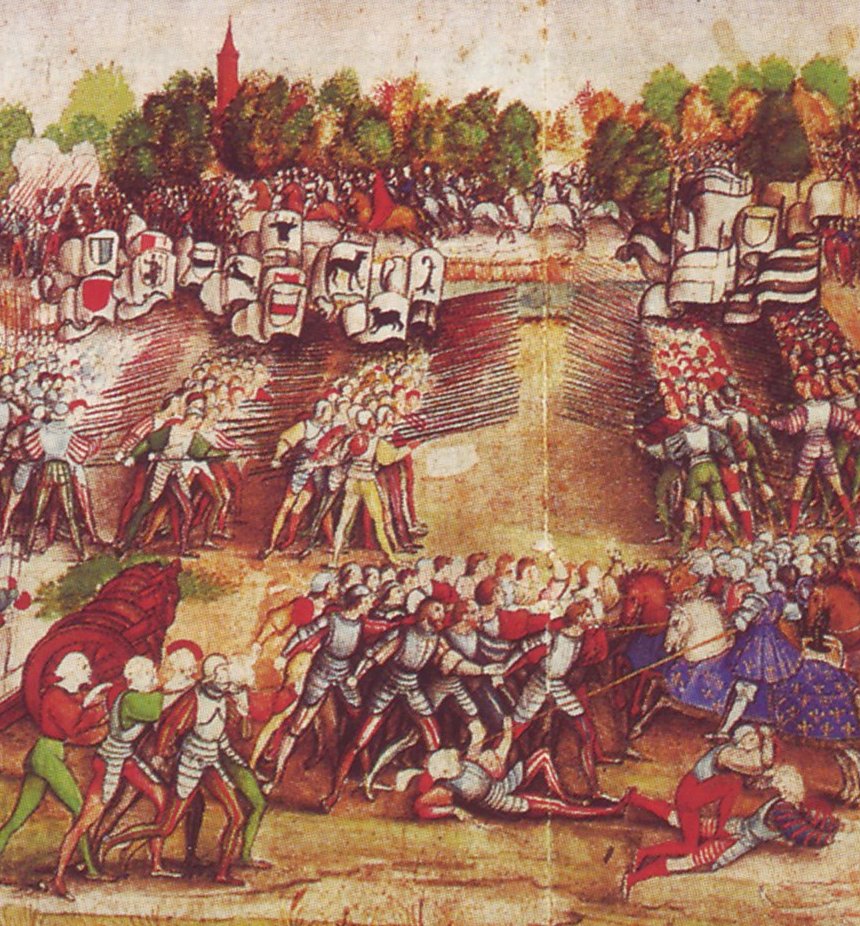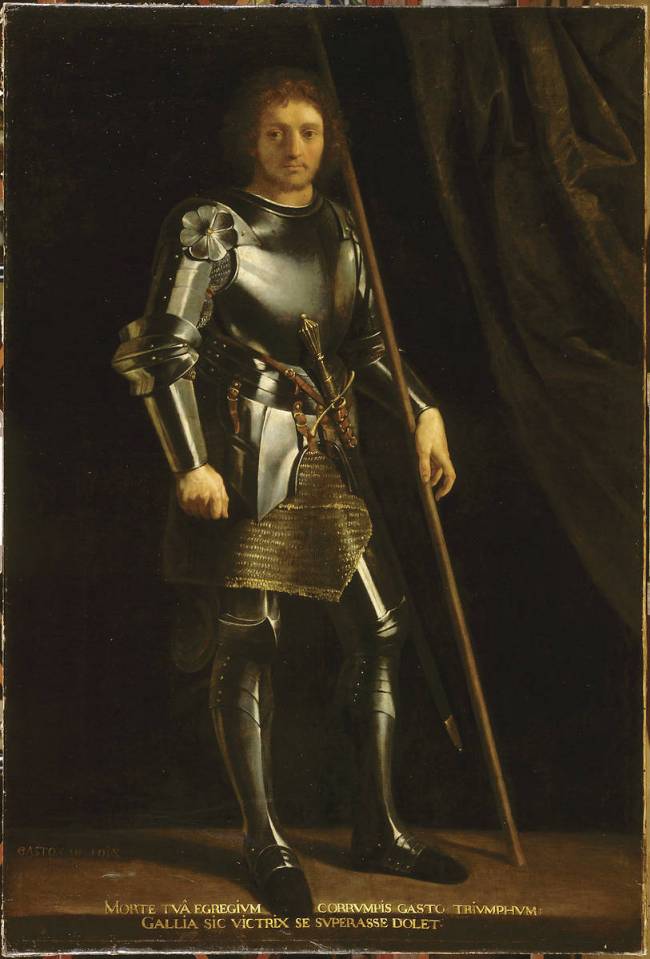|
Albert Von Stein
Albert von Stein (floruit, fl. 1513–22) was a Swiss mercenary captain. During the War of the League of Cambrai, having arrived late to the Battle of Novara (1513), Battle of Novara, he abandoned the Swiss army before the Battle of Marignano. In 1522, he was the chief of the Swiss captains in the service of Odet de Foix, Vicomte de Lautrec, and was killed commanding one of the Swiss columns at the Battle of Bicocca during the Italian War of 1521-26. References * Charles Oman, Oman, Charles. ''A History of the Art of War in the Sixteenth Century''. London: Methuen & Co., 1937. {{DEFAULTSORT:Stein, Albert von 1522 deaths Swiss mercenaries Military leaders of the Italian Wars Swiss military personnel killed in action Year of birth unknown ... [...More Info...] [...Related Items...] OR: [Wikipedia] [Google] [Baidu] |
Floruit
''Floruit'' (; abbreviated fl. or occasionally flor.; from Latin for "they flourished") denotes a date or period during which a person was known to have been alive or active. In English, the unabbreviated word may also be used as a noun indicating the time when someone flourished. Etymology and use la, flōruit is the third-person singular perfect active indicative of the Latin verb ', ' "to bloom, flower, or flourish", from the noun ', ', "flower". Broadly, the term is employed in reference to the peak of activity for a person or movement. More specifically, it often is used in genealogy and historical writing when a person's birth or death dates are unknown, but some other evidence exists that indicates when they were alive. For example, if there are wills attested by John Jones in 1204, and 1229, and a record of his marriage in 1197, a record concerning him might be written as "John Jones (fl. 1197–1229)". The term is often used in art history when dating the career ... [...More Info...] [...Related Items...] OR: [Wikipedia] [Google] [Baidu] |
Swiss Mercenary
The Swiss mercenaries (german: Reisläufer) were a powerful infantry force constituted by professional soldiers originating from the cantons of the Old Swiss Confederacy. They were notable for their service in foreign armies, especially among the military forces of the Kings of France, throughout the Early Modern period of European history, from the Late Middle Ages into the Renaissance. Their service as mercenaries was at its peak during the Renaissance, when their proven battlefield capabilities made them sought-after mercenary troops. There followed a period of decline, as technological and organizational advances counteracted the Swiss' advantages. Switzerland's military isolationism largely put an end to organized mercenary activity; the principal remnant of the practice is the Pontifical Swiss Guard at the Vatican. Ascendancy During the Late Middle Ages, mercenary forces grew in importance in Europe, as veterans from the Hundred Years War (1337–1453) and other ... [...More Info...] [...Related Items...] OR: [Wikipedia] [Google] [Baidu] |
War Of The League Of Cambrai
The War of the League of Cambrai, sometimes known as the War of the Holy League and several other names, was fought from February 1508 to December 1516 as part of the Italian Wars of 1494–1559. The main participants of the war, who fought for its entire duration, were France, the Papal States, and the Republic of Venice; they were joined at various times by nearly every significant power in Western Europe, including Spain, the Holy Roman Empire, England, the Duchy of Milan, the Republic of Florence, the Duchy of Ferrara, and the Swiss. The war started with the ''Italienzug'' of Maximilian I, King of the Romans, crossing into Venetian territory in February 1508 with his army on the way to be crowned Holy Roman Emperor by the Pope in Rome. Meanwhile, Pope Julius II, intending to curb Venetian influence in northern Italy, brought together the League of Cambrai — an anti-Venetian alliance consisting of him, Maximilian I, Louis XII of France, and Ferdinand II of Aragon ... [...More Info...] [...Related Items...] OR: [Wikipedia] [Google] [Baidu] |
Battle Of Novara (1513)
The Battle of Novara (also known as the battle of Ariotta) was a battle of the War of the League of Cambrai fought on 6 June 1513, near Novara, in Northern Italy. A French attacking force was routed by allied Milanese–Swiss troops, the consequence of which was that France was forced to withdraw entirely from Italy. Prelude The French had been victorious at the Battle of Ravenna the previous year. Nevertheless, the French under King Louis XII were driven out of the city of Milan the following month by the Holy League. Following the French removal from Milan, Swiss mercenaries installed Maximilian Sforza as Duke of Milan on 29 December 1512. In June 1513, the French army, consisting of more than 20,000 under Louis de la Trémoille, besieged the city of Novara, which was held by Swiss mercenaries. Battle By June 1513, most of the western part of the duchy of Milan had been occupied by the French. After marching to Novara the night before, the French were surprised at dawn by a ... [...More Info...] [...Related Items...] OR: [Wikipedia] [Google] [Baidu] |
Battle Of Marignano
The Battle of Marignano was the last major engagement of the War of the League of Cambrai and took place on 13–14 September 1515, near the town now called Melegnano, 16 km southeast of Milan. It pitted the French army, composed of the best heavy cavalry and artillery in Europe, led by Francis I, newly crowned King of France, against the Old Swiss Confederacy, whose mercenaries until that point were regarded as the best medieval infantry force in Europe. With the French were German ''landsknechts'', bitter rivals of the Swiss for fame and renown in war, and their late arriving Venetian allies. Background The campaign of Marignano followed years of Swiss successes, during which French fortunes in Northern Italy had suffered greatly. The Swiss had taken control of Milan (for France the gateway to Italy) after their victory at the Battle of Novara (1513), and returned to its ducal throne Massimiliano, son of Ludovico Sforza, to make Milan a protectorate of Switzerland. ... [...More Info...] [...Related Items...] OR: [Wikipedia] [Google] [Baidu] |
Odet De Foix, Vicomte De Lautrec
Odet de Foix, Vicomte de Lautrec (1485 – 15 August 1528) was a French military leader. As Marshal of France, he commanded the campaign to conquer Naples, but died from the bubonic plague in 1528. Biography Odet was the son of Jean de Foix-Lautrec and Jeanne d'Aydie. He and his two brothers, the seigneur de Lescun and the seigneur de l'Esparre or Asparros, served Francis I of France as captains; and the influence of their sister, Françoise de Châteaubriant, who became the king's mistress, gained them high office. In 1516, as marshal of France, Odet was made governor-general of the Milanese duchy, but his severity made the French occupation insupportable. He was present at the Field of the Cloth of Gold being in Francis I's royal entourage. Odet arrived to resume the siege of Brescia, and on 26 May 1521, the Spanish and German garrison surrendered. The surrender was caused by the dissonance between the two factions, while Brescia was given over to Venetian commissioner ... [...More Info...] [...Related Items...] OR: [Wikipedia] [Google] [Baidu] |
Battle Of Bicocca
The Battle of Bicocca or La Bicocca ( it, Battaglia della Bicocca) was fought on 27 April 1522, during the Italian War of 1521–26. A combined French and Venetian force under Odet de Foix, Vicomte de Lautrec, was decisively defeated by an Imperial–Spanish and Papal army under the overall command of Prospero Colonna. Lautrec then withdrew from Lombardy, leaving the Duchy of Milan in Imperial hands. Having been driven from Milan by an Imperial advance in late 1521, Lautrec had regrouped, attempting to strike at Colonna's lines of communication. When the Swiss mercenaries in French service did not receive their pay, however, they demanded an immediate battle, and Lautrec was forced to attack Colonna's fortified position in the park of the Arcimboldi Villa Bicocca, north of Milan. The Swiss pikemen advanced over open fields under heavy artillery fire to assault the Imperial positions, but were halted at a sunken road backed by earthworks. Having suffered massive casualti ... [...More Info...] [...Related Items...] OR: [Wikipedia] [Google] [Baidu] |
Italian War Of 1521-26
Italian(s) may refer to: * Anything of, from, or related to the people of Italy over the centuries ** Italians, an ethnic group or simply a citizen of the Italian Republic or Italian Kingdom ** Italian language, a Romance language *** Regional Italian, regional variants of the Italian language ** Languages of Italy, languages and dialects spoken in Italy ** Italian culture, cultural features of Italy ** Italian cuisine, traditional foods ** Folklore of Italy, the folklore and urban legends of Italy ** Mythology of Italy, traditional religion and beliefs Other uses * Italian dressing, a vinaigrette-type salad dressing or marinade * Italian or Italian-A, alternative names for the Ping-Pong virus, an extinct computer virus See also * * * Italia (other) * Italic (other) * Italo (other) * The Italian (other) * Italian people (other) Italian people may refer to: * in terms of ethnicity: all ethnic Italians, in and outside of Italy * ... [...More Info...] [...Related Items...] OR: [Wikipedia] [Google] [Baidu] |
Charles Oman
Sir Charles William Chadwick Oman, (12 January 1860 – 23 June 1946) was a British Military history, military historian. His reconstructions of medieval battles from the fragmentary and distorted accounts left by chroniclers were pioneering. Occasionally his interpretations have been challenged, especially his widely copied thesis that British troops defeated their Napoleonic opponents by firepower alone. Paddy Griffith, among modern historians, claims that the British infantry's discipline and willingness to attack were equally important. Early life Oman was born in Muzaffarpur district, British Raj, India, the son of a British planter, and was educated at Winchester College and at the University of Oxford, where he studied under William Stubbs. Here, he was invited to become a founding member of the Stubbs Society, which was under Stubbs's patronage. Career In 1881 he was elected to a Prize Fellowship at All Souls College, where he remained for the rest of his academic car ... [...More Info...] [...Related Items...] OR: [Wikipedia] [Google] [Baidu] |
1522 Deaths
Fifteen or 15 may refer to: *15 (number), the natural number following 14 and preceding 16 *one of the years 15 BC, AD 15, 1915, 2015 Music *Fifteen (band), a punk rock band Albums * ''15'' (Buckcherry album), 2005 * ''15'' (Ani Lorak album), 2007 * ''15'' (Phatfish album), 2008 * ''15'' (mixtape), a 2018 mixtape by Bhad Bhabie * ''Fifteen'' (Green River Ordinance album), 2016 * ''Fifteen'' (The Wailin' Jennys album), 2017 * ''Fifteen'', a 2012 album by Colin James Songs * "Fifteen" (song), a 2008 song by Taylor Swift *"Fifteen", a song by Harry Belafonte from the album '' Love Is a Gentle Thing'' *"15", a song by Rilo Kiley from the album ''Under the Blacklight'' *"15", a song by Marilyn Manson from the album ''The High End of Low'' *"The 15th", a 1979 song by Wire Other uses *Fifteen, Ohio, a community in the United States * ''15'' (film), a 2003 Singaporean film * ''Fifteen'' (TV series), international release name of ''Hillside'', a Canadian-American teen drama *Fi ... [...More Info...] [...Related Items...] OR: [Wikipedia] [Google] [Baidu] |
Swiss Mercenaries
The Swiss mercenaries (german: Reisläufer) were a powerful infantry force constituted by professional soldiers originating from the cantons of the Old Swiss Confederacy. They were notable for their service in foreign armies, especially among the military forces of the Kings of France, throughout the Early Modern period of European history, from the Late Middle Ages into the Renaissance. Their service as mercenaries was at its peak during the Renaissance, when their proven battlefield capabilities made them sought-after mercenary troops. There followed a period of decline, as technological and organizational advances counteracted the Swiss' advantages. Switzerland's military isolationism largely put an end to organized mercenary activity; the principal remnant of the practice is the Pontifical Swiss Guard at the Vatican. Ascendancy During the Late Middle Ages, mercenary forces grew in importance in Europe, as veterans from the Hundred Years War (1337–1453) and other confl ... [...More Info...] [...Related Items...] OR: [Wikipedia] [Google] [Baidu] |
Military Leaders Of The Italian Wars
This is a list of military leaders of the Italian Wars. Notes References * Arfaioli, Maurizio. ''The Black Bands of Giovanni: Infantry and Diplomacy During the Italian Wars (1526–1528)''. Pisa: Pisa University Press, Edizioni Plus, 2005. . * Arnold, Thomas F. ''The Renaissance at War.'' Smithsonian History of Warfare, edited by John Keegan. New York: Smithsonian Books / Collins, 2006. . * Baumgartner, Frederic J. ''Louis XII''. New York: St. Martin's Press, 1994. . * Black, Jeremy. "Dynasty Forged by Fire." ''MHQ: The Quarterly Journal of Military History'' 18, no. 3 (Spring 2006): 34–43. . * ———. ''European Warfare, 1494–1660.'' Warfare and History, edited by Jeremy Black. London: Routledge, 2002. . * Blockmans, Wim. ''Emperor Charles V, 1500–1558''. Translated by Isola van den Hoven-Vardon. New York: Oxford University Press, 2002. . * Guicciardini, Francesco. ''The History of Italy''. Translated by Sydney Alexander. Princeton: Princeton University P ... [...More Info...] [...Related Items...] OR: [Wikipedia] [Google] [Baidu] |



